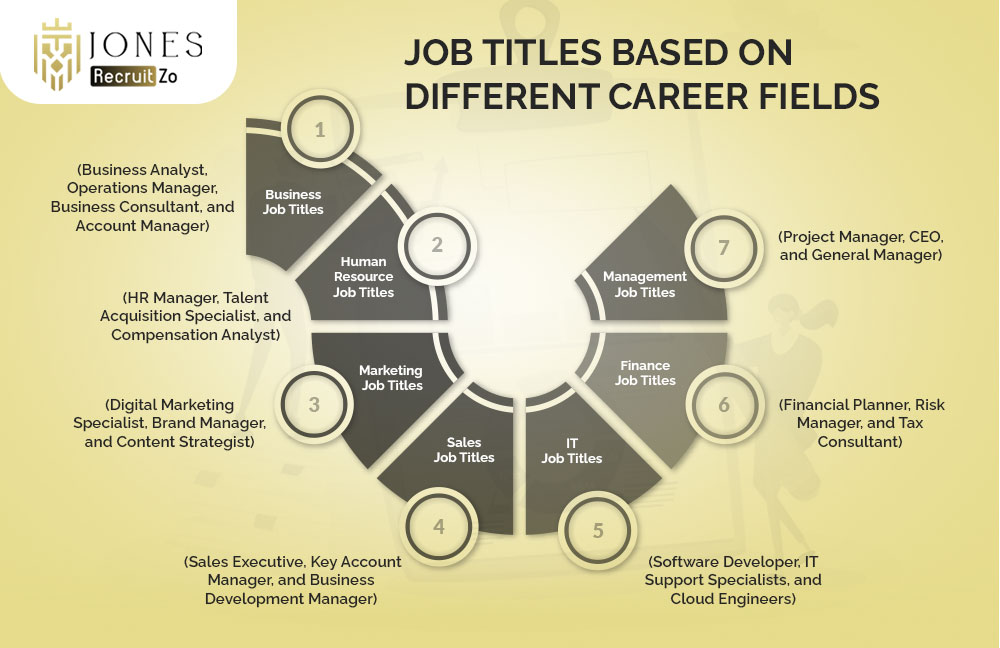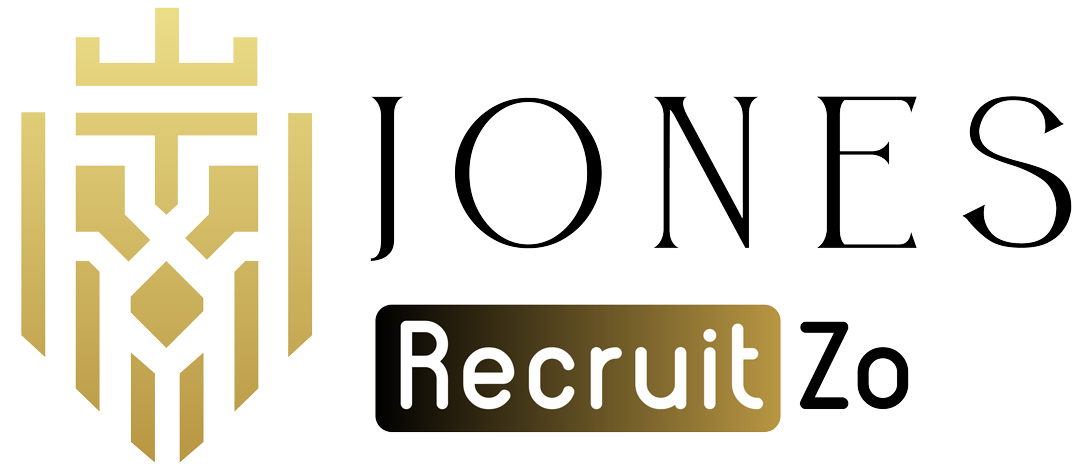What is a Job Title?
A job title is a title to describe the position an individual holds in an organization. It indicates the function, responsibilities, and level of seniority. A proper understanding of what is a job title allows employees and employers alike to categorise the respective roles efficiently. Examples of job titles are: Manager, Analyst, and Developer.
Why is it Important to have Job Titles?

Job titles are essential, as it brings some structure to work, both to help the employee and the employer define expectations. Role differentiation and systematising teamwork, it also forms the basis of measurement to develop careers within the organization.
For Employees
Job titles define the role of an employee, his responsibilities, and the designation in the order of seniority, something that is crucial for career paths, salary expectations, and perception from outside. It provides a guideline to professionals in navigate careers, establish credibility, and enhance job opportunities.
-
Career Progression
Job titles serve as a major avenue for career advancement since they denote experience, responsibilities, and skills. Promotions and salary increments hinge on the job title, while some job opportunities are directly correlated to the job title. Understanding what a job title means aids employers and employees in setting career paths and working towards advancement.
-
External Perception
Clear job titles strengthen outside credibility for employees as they describe one’s expertise. In a manner of speaking, titles like Senior Consultant or Director indicate to clients, vendors, and stakeholders the level of expertise of a professional, thus enhancing credibility and opportunity.
-
Salary Expectations
A description of a job title directly impacts compensation expectations since organizations set compensation for specific jobs. Knowledge of what is a job title aids employees in negotiating compensation packages according to the industry and pay levels offered by the employer.
For Employers
Employers use job titles to establish hierarchy, ensure smoother recruitment, and enhance branding. Clear titles bring clarity to the responsibilities assigned to the incumbent, ensuring better requirements management of the workforce and smoother communication to achieve operational efficiency.
-
Clarify Organizational Hierarchy
Job titles generally give employers the hierarchy to define structure in the organization. Understanding what defines a job title helps businesses allocate responsibilities adequately, leading to sustained workflow efficiency and optimal reporting lines.
-
Helps in Recruitment
A correct job title serves to ease recruitment through defining duties and competencies. Job titles like Marketing Executive or IT Specialist attract the right sort of applicants, ensuring an efficient recruitment process that meets the company’s needs.
-
Enhances Company Image
Transparent job titles are such that they enhance the corporate image by ensuring transparency, attracting the very best in the market, and enhancing employees’ motivation. The understanding of what is a job title assists organizations in communicating professionalism and credibility within the sector.
Job Titles Across Industries
Each industry has its set of job titles, undergoing variations such as Software Engineer in the tech industry and Financial Executive in finance. An appreciation of these roles enables a person to match their skills with industry expectations and ultimately career aspirations.
-
Technology
The technological zone has various job titles, namely Software Engineer, Data Scientist, IT Manager, IT Engineer, Cyber Security Specialist. Understanding what is the meaning of a job title really helps professionals embrace defining their essence and their future journey in tech roles.
-
Healthcare
In health careers, job titles vary from clinical roles describing jobs of Doctors, Nurses, and Therapists to administrative roles like Medical Assistant and Healthcare Administrator. A job title guarantees clarity in medical professions and career advancement.
-
Finance
The field of finance has diverse job titles, including Financial Analyst, Accountant, Auditor, Financial Manager, Chief Financial Officer (CFO), and Financial Planner. Jobs whose roles are to manage investments, analyze risks, and maintain the health of an organization.
-
Creative Industries
Creative professionals generally take up job titles such as Art Director, Graphic Designer, and UX Designer. They take care of storytelling, brand building, and user experience, all of which go a long way in improving their business and media presence.
Job Titles Based on Different Career Fields

There are titles in the career fields different from each other. It may be Marketing Manager in marketing or HR Specialist in human resources. This designation helps guide professionals in deciding which pathways to follow based on their area of expertise and interest.
-
Business Job Titles
Common business job titles include Business Analyst, Operations Manager, Business Consultant, and Account Manager. These job title examples mostly focus on strategic planning, process optimization, client management, and business development that are vital for business growth.
-
Human Resource Job Titles
HR professionals hold titles like HR Manager, Talent Acquisition Specialist, HR Coordinator, Training and Development Manager, and Compensation Analyst. Understanding the concept of job title in HR helps to manage recruitment, employee relations, training, benefits, and compliance.
-
Marketing Job Titles
Some marketing job positions include Digital Marketing Specialist, Brand Manager, and Content Strategist, which are a few examples focused on market research and branding. Job title examples in marketing highlight expertise in digital strategy and customer engagement.
-
Sales Job Titles
Sales designations like Sales Executive, Key Account Manager, Business Development Manager – these job titles are all with a lead generation and revenue growth focus. Knowing what is the meaning of a job title in sales makes the setting up of performance expectations better and more realistic.
-
IT Job Titles
IT job titles include Software Developer, IT Support Specialists, and Cloud Engineers, which primarily deal with software development, technical support, and the management of cloud infrastructure for smooth operations in IT.
-
Finance Job Titles:
Finance job title examples include Financial Planner, Risk Manager, or Tax Consultant. These roles primarily maintain the financial health of an organization by analysing market trends, mitigating risks, and ensuring compliance with government regulations.
-
Management Job Titles:
Project Manager, CEO, and General Manager are some of the management job titles that imply leadership and strategic planning. These roles bring decision-making into operational efficiencies and the growth of the enterprise.
FAQs
1) What is a Job Title?
A job title is a title to describe the position an individual holds in an organization. It indicates the function, responsibilities, and level of seniority.
2) Why is it important to have job titles?
Job titles are essential, as it brings some structure to work, both to help the employee and the employer define expectations. Role differentiation and systematising teamwork, it also forms the basis of measurement to develop careers within the organization.
3) What is the difference between traditional and modern job titles?
Traditional job titles (for example, manager and clerk) are hierarchical, while newer ones (for example, growth hacker and data scientist) are skills-based and creative. Professionals should embrace changing titles so they can remain relevant in shifting industries.
4) What’s the significance of job titles in salary negotiations?
A description of a job title directly impacts compensation expectations since organizations set compensation for specific jobs. Knowledge of what is a job title aids employees in negotiating compensation packages according to the industry and pay levels offered by the employer.







